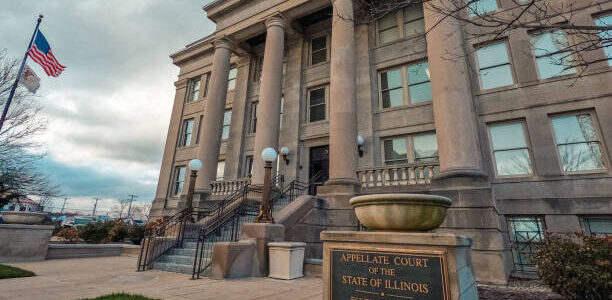BlogLine
Final means final: Court considers the effect of a posttrial motion for costs on a final judgment
9/17/24

By: Donald Patrick Eckler and Jessica Sterna
A request for statutory costs does not render an otherwise final order non-final and does not thereby extend the time to file a notice of appeal. One of the appellants in Bhutani v. Barrington Bank & Trust Co., N.A., 2024 IL App. (2d) 230162 found that out the hard way when the court reversed the circuit court holding that the appellant’s motion to reconsider was not timely filed.
In Bhutani, the court granted a judgment to Bhutani on October 26, 2022. On November 22, 2022, Bhutani filed a motion to reconsider the damage award against it. Following the motion to reconsider, Barrington Bank timely filed a motion to tax costs. The trial court resolved the motion for costs in their March 3, 2023 order, which the trial court regarded as the final order in the case. However, issues arose as to whether the March 3, 2023, or the October 26, 2022, order was the final order which would have tolled the running of the 30-day period to file an appeal until after the motion for costs was resolved, making Bhutani’s subsequent notice of appeal filed on May 11, 2023 timely.
To come to this holding, the Illinois Appellate Court turned to other statutes where their express language states the procedural effect the filing has on the finality of the claim. Turning towards Illinois Supreme Court Rule 137 (eff. Ja. 1, 2018), the specific language of the statute states that a pleading, motion, or document “shall be considered a claim within the same civil action.” Ill. S. Ct. R. 137(b). In our case, Barrington Bank filed a motion to tax costs under 735 ILCS 5/5108 and 109. Unlike Rule 137, the express language of those statutes do not specifically state that a request for costs constitutes a separate claim. Ultimately, the Bhutani court held that because these sections do not expressly state that filing a motion to tax costs constitutes a separate claim, a filing of this motion has no effect on the appealability of the judgment.
Bhutani also relied on Gray v. National Restoration Systems, Inc., 354 Ill. App. 3d 345 (2004) to come to this holding. In Gray, the defendants filed a motion for costs after the court entered a series of orders, and plaintiff, thereafter, filed a notice of appeal. The court concluded that an order of dismissal was appealable although there were pending motion for costs. Relying on Servio v. Paul Roberts Auto Sales, Inc., 211 Ill. App 3d 751 (1991), the Gray court made a distinction between necessary claims and claims that are collateral to the judgment. Motion for fees collateral to the judgment does not affect the appealability of a final judgment. It follows that the resolution of the motion for costs need not be resolved before the action became appealable.
Through express statutory language and case law, the Illinois Appellate Court in Bhutani determined that because Barrington Bank’s claim for costs was not part of the original action and was instead “collateral to the underlying action,” Barrington Bank’s motion to tax costs is ancillary to the litigation and, therefore, having no procedural effect on the appealability of the final judgment.
This holding demonstrates the importance of understanding the procedural effect that filing a request for costs has on the final judgment. It is critical to look at the express language of the relevant statute to recognize whether the pleading, motion, or document functions as a separate civil suit or be considered a part of the same civil action. Failure to recognize these key differences may result in a failure to timely appeal.
For more information, please contact Donald Patrick Eckler at patrick.eckler@fmglaw.com or your local FMG attorney.
Share
Save Print
